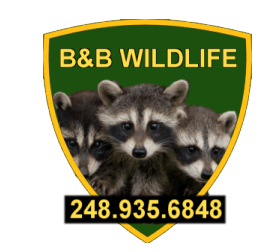Raccoons may act unpredictably and aggressively.
Raccoons are cute with their bandit’s mask and ringed tail.
Raccoons are noted for their intelligence.
Raccoons Raccoons Raccoons – Information on Raccoons
 Interesting Facts on Raccoons and Their Behaviour:
Interesting Facts on Raccoons and Their Behaviour:
- Raccoons are found in almost every major habitat in the United States and southern Canada.
- Raccoons make several types of noises, including a purr, a chittering sound, and various growls, snarls, and snorts.
- Raccoons will eat almost anything, but are particularly fond of creatures found in water—clams, crayfish, frogs, fish, and snails.
- Raccoons also eat insects, slugs, dead animals, birds and bird eggs, as well as fruits, vegetables, nuts, and seeds. Around humans, raccoons often eat garbage and pet food.
- Raccoon droppings may carry a parasite that can be fatal to humans. Do not handle or smell raccoon droppings and wash your hands if you touch any.
More Facts about Raccoons
Raccoons are one of the most charismatic species of animals found in North America. Given their superb ability to adapt to, and even exploit, changing environmental conditions, it’s not too surprising that raccoons are now common residents in cities, towns, and suburbs.
A raccoon’s search for food may lead it to a vegetable garden, fish pond, garbage can, or chicken coop. Its search for a den site may lead it to an attic, chimney, or crawl space.
In addition to eating wild foods, raccoons aren’t averse to raiding gardens, garbage cans, bird feeders, fish ponds—even kitchen cabinets. Raccoons have been known to use door knobs, so cabinet doors are hardly a challenge. And a pet door is an open invitation. Chimneys, porches, and attics are all attractive denning sites from the raccoon perspective. Add readily accessible trash cans, or pet food and water bowls, and you’ve got the raccoon equivalent of a Hilton.
Raccoons are one of the few wild species that appears to have benefited from contact with humans, and they have adapted remarkably well to life in our cities and towns. Such synanthropes—wild animals who are willing and able to live among humans—are usually generalists, tolerating widely different habitats and eating many different foods. Studies show that the densities raccoons achieve in urban areas can be up to 20 times that typical in rural environments.
In many states it is illegal to own a raccoon. The raccoon can be a pet but is still very much a wild animal. While baby raccoons are sweet and endearing, adult raccoons do bite and they become destructive, messy and vicious. Rarely does a raccoon make a good pet. In some instances raccoons have made successful pets but this is often not the case. Once a raccoon becomes an adult and unmanageable people want to let them loose. A raccoon raised in a home, as a pet has no survival skills to be released into the wild. If released he will starve and die.
A disease that contributes significantly to raccoon mortality is canine distemper. Canine distemper is also a common disease fatal to domestic dogs, foxes, coyotes, mink, otters, weasels, and skunks. It is caused by a virus and is spread most often when animals come in contact with the bodily secretions of animals infected with the disease. Gloves, cages, and other objects that have come in contact with infected animals can also contain the virus. The best prevention against canine distemper is to have your dogs vaccinated and kept away from raccoons.
Raccoons in Your House or Attic?:
B&B Wildlife Removal Service understands that raccoons are cute with their bandit masked eyes and bushy tails. We also understand that you don’t want them living in your home, attic or chimney. Raccoons will build nests in attics, chimneys, vents, roofs and walls. The raccoon deposits its feces in “latrines” which can soil insulation and become a serious health hazard. When raccoons are allowed to remain in a house, or around the property, many such latrines will be present. We humanely trap the raccoons and relocate them to a safe place, then seal the entry points so they don’t get back in.
Raccoons and Rabies:
The raccoon is one of four wild animals in the United States (including the fox, skunk, and bat) considered to be primary carriers of the rabies virus. Despite the concern and fear surrounding rabies, advances in public education, vaccination of pets, and post-exposure treatment have greatly reduced the risk to humans.
However, the raccoon roundworm (Baylisascaris procyonis) is a serious public health concern. Raccoon roundworm is being found in most captured urban raccoons or in their feces deposited in the latrines they make on the roof, in trees, or on the ground around the property. This parasite is transmitted through the ingestion or inhalation of eggs passed in raccoon feces. Raccoon roundworm eggs can remain alive in soil and other places for several months. Children should be prevented from playing in areas where raccoons have defecated.
Raccoons are also hosts for the zoonotic (transmittable to humans) disease leptospirosis, but the incidence is so low as to be of concern only to people who routinely come into contact with these animals, such as wildlife rehabilitators or animal control officers.
Call B&B Wildlife Removal Services TODAY!
248-935-6848


